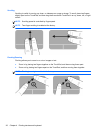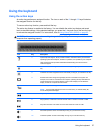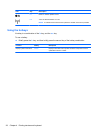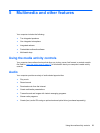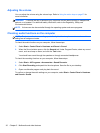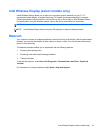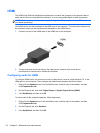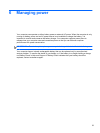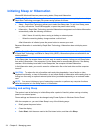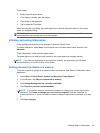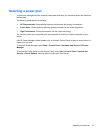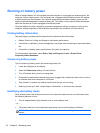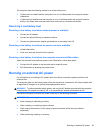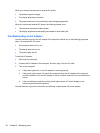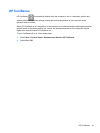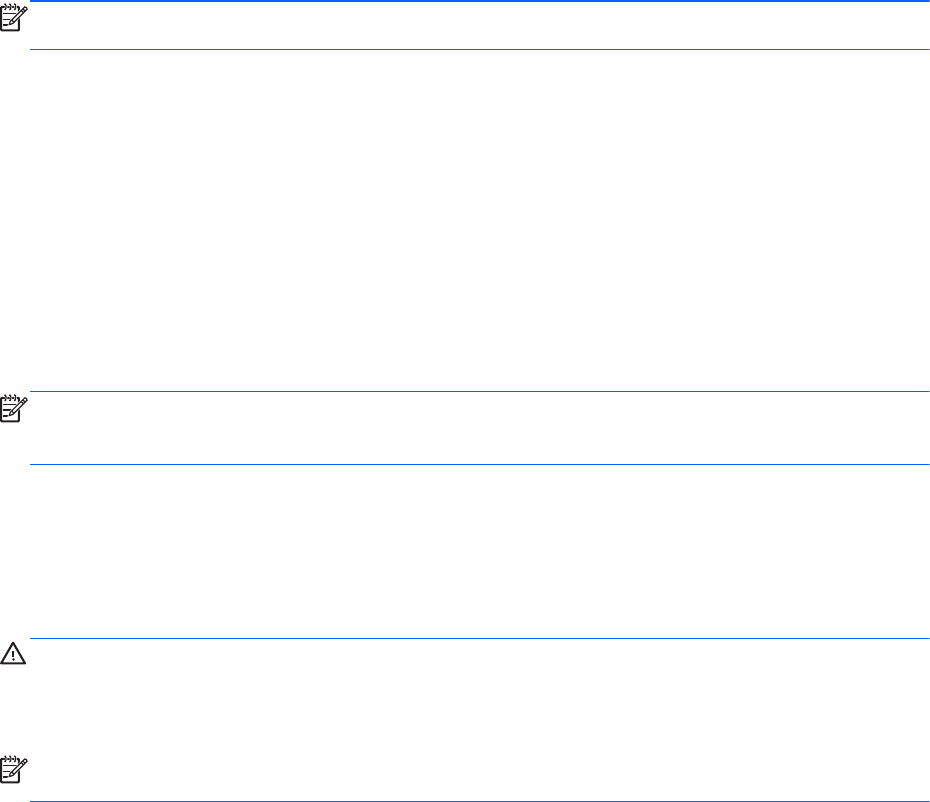
Initiating Sleep or Hibernation
Microsoft® Windows® has two power-saving states, Sleep and Hibernation.
NOTE: The Rapid Start Technology feature allows your computer to resume quickly from inactivity.
Rapid Start Technology manages your power-saving options as follows:
●
Sleep – Rapid Start Technology allows you to select the Sleep state. To exit from Sleep, press
any key, activate the TouchPad/Imagepad, or press the power button briefly.
● Hibernation - Rapid Start Technology controls Hibernation management and initiates Hibernation
automatically under the following conditions:
◦
After 2 hours of inactivity when running on battery or external power
◦ When the remaining battery charge reaches a critical level
After Hibernation is initiated, press the power button to resume your work.
Because Hibernation is controlled by Rapid Start Technology, Hibernation does not display as an
option.
NOTE: Rapid Start Technology is enabled at the factory and can be disabled in Setup Utility (BIOS).
If Rapid Start Technology is disabled in Setup Utility (BIOS), Hibernation options are available to be
actively selected.
In the Sleep state, the screen clears, and your work is saved to memory, letting you exit Sleep faster
than exiting Hibernation. If the computer is in the Sleep state for an extended period or if the battery
reaches a critical battery level while in the Sleep state, the computer initiates Hibernation.
In the Hibernation state, your work is saved to a hibernation file on the hard drive and the computer
turns off.
CAUTION: To reduce the risk of possible audio and video degradation, loss of audio or video
playback functionality, or loss of information, do not initiate Sleep or Hibernation while reading from or
writing to a disc using an optional external optical drive (purchased separately) or an external media
card.
NOTE: You cannot initiate any type of networking connection or perform any computer functions
while the computer is in the Sleep state or in Hibernation.
Initiating and exiting Sleep
The system is set at the factory to initiate Sleep after a period of inactivity when running on battery
power or on external power.
Power settings and timeouts can be changed using Power Options in Windows Control Panel.
With the computer on, you can initiate Sleep in any of the following ways:
●
Briefly press the power button.
●
Close the display.
●
Select Start, click the arrow next to the Shut down button, and then click Sleep.
34 Chapter 6 Managing power



